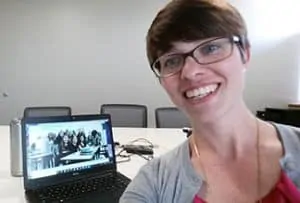

When the Federal Coal Combustion Residual (CCR) rule went into effect in 2015, it was a new regulatory layer on top of a widely varying landscape of state regulations affecting CCR management in impoundments and landfills. Some states already had significant regulations on the books for CCR impoundments and/or landfills, while others did not.
Where state regulations existed, they varied widely from state to state. While a few states have moved toward closing the gap between state and Federal CCR requirements, many utilities continue to face confusing and conflicting requirements coming from different regulatory programs as they move ahead with managing their CCR facilities.
In her paper entitled State vs Federal CCR Rule Regulations: Comparisons and Impacts, Nicole Kron shares state-versus-federal regulatory challenges utilities have encountered during landfill design and management, impoundment closure, and groundwater monitoring and reporting since the implementation of the Federal CCR rule. For example, some sites have completely distinct groundwater monitoring programs under state-versus-federal rules, with different well locations, well depths, and monitoring parameters for the same facility. She highlights unique approaches to bridging regulatory gaps and resolving regulatory conflicts between state and Federal CCR requirements. Ms. Kron also provides insights gained on the long-term potential for regulatory resolution of these issues based on discussions with state regulators in multiple states.

About the Author: Nicole Kron has nearly a decade of experience in the environmental consulting field. Her experiences focus on groundwater quality analysis of sites contaminated with coal gasification byproducts, coal combustion byproducts, chlorinated solvents, petroleum products, metals, and PCBs. Her experience includes managing team task coordination, groundwater modeling, and statistical analysis of CCP/CCR sites. She is experienced in planning and performing soil and groundwater contamination investigations, air monitoring, well design and installation, and soil and groundwater sampling.